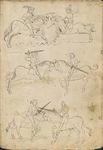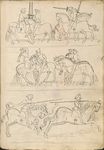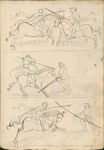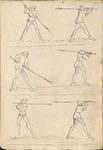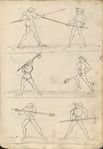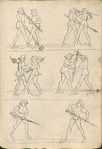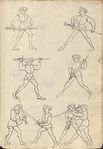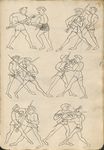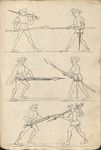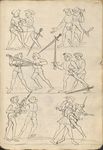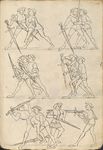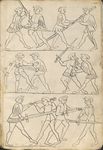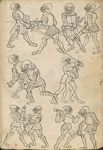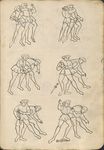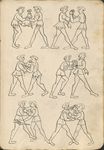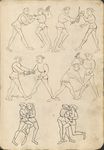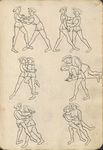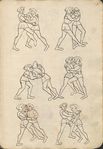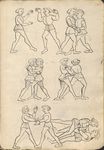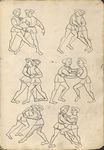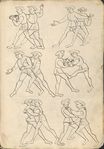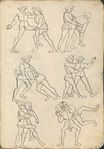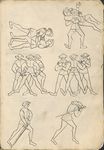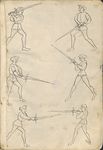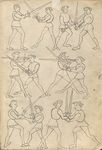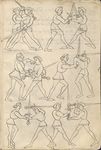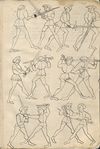|
|
You are not currently logged in. Are you accessing the unsecure (http) portal? Click here to switch to the secure portal. |
Difference between revisions of "Die Blume des Kampfes (Cod.5278)"
| Line 8: | Line 8: | ||
| caption = First page of the fencing manual, f 174r | | caption = First page of the fencing manual, f 174r | ||
<!----------General----------> | <!----------General----------> | ||
| − | | Index number = | + | | Index number = [[WI::—]] |
| + | | Wierschin's catalog=[[WC::—]] | ||
| Hils' catalog = [[HK::—]] | | Hils' catalog = [[HK::—]] | ||
| Beck catalog = [[BC::38.9.12]] | | Beck catalog = [[BC::38.9.12]] | ||
Revision as of 23:22, 2 March 2014
| Die Blume des Kampfes | |||||
|---|---|---|---|---|---|
| Cod.5278, Österreichische Nationalbibliothek Vienna, Austria | |||||
| 150px First page of the fencing manual, f 174r | |||||
| |||||
| |||||
| Type | |||||
| Date | ca. 1428 | ||||
| Place of origin | Unknown | ||||
| Language(s) | Early New High German | ||||
| Author(s) | Konrad Kyeser | ||||
| Scribe(s) | Unknown | ||||
| Material | Paper, in a white pressboard cover | ||||
| Size | 203 folia | ||||
| Format | Single-sided; six illustrations per page, without text (part II) | ||||
| Script | Bastarda | ||||
| External data | Library catalog listing | ||||
| Treatise scans | Microfilm scans | ||||
The Codex 5278 is a German manuscript created some time after 1428,[1] consisting of a war book and a fencing manual. The original currently rests in the holdings of the Österreichische Nationalbibliothek in Vienna, Austria. The text is a compilation work including both Konrad Kyeser's popular treatise on siege warfare Bellifortis ("Battle Strength") and the first entry in the group of manuscripts known as die Blume des Kampfes ("The Flower of Battle").[2] This treatise might be based on the tradition of 14th century Italian master Fiore de'i Liberi given that his works include considerable technical overlap, but it is equally possible that they represent an earlier German tradition of which Fiore was himself an initiate.
Provenance
Contents
| Folio | Section |
|---|---|
| 1r - 173r, 199v, 201v, 202v, 203v |
Miscellaneous writings, including excerpts from Bellifortis by Konrad Kyeser |
| 174r - 176r | Anonymous mounted fencing teachings |
| 177r - 179r | Anonymous pole weapons teachings |
| 179r - 186r | Anonymous armored fencing teachings |
| 187r - 189r | Anonymous dagger teachings |
| 189r - 196r | Anonymous grappling teachings |
| 196r - 201r | Anonymous longsword teachings |
| 201r - 203r | Anonymous sword vs. dagger teachings |
Gallery
Images hosted by WikiMedia Commons.
Additional Resources
References
- ↑ The manuscript mentions a duel between Heinrich von Ramstein and Juan de Merlo which occurred on 12 December 1428; see also Manuscripta Mediaevalia. Retrieved 14 November 2010.
- ↑ The informal nickname "Die Blume des Kampfes" is simply a translation of the title of the Italian treatise "Fior di Battaglia"; the treatises themselves all appear to be untitled.

